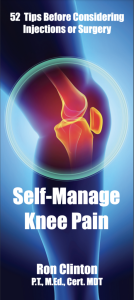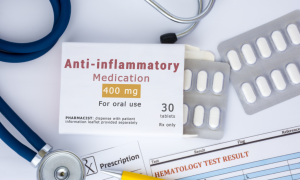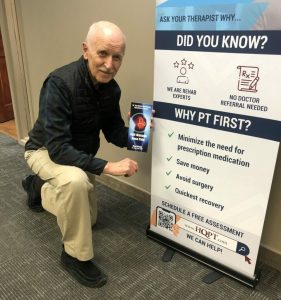Our Book
Self-Managed Knee Pain book, now available on Amazon, helps you recover from knee pain before considering injections or surgery. It is based on clinical experience and success from treating hundreds of patients successfully.
Self-Manage Knee Pain

When knee pain disrupts your daily activities and hinders your quality of life, finding effective and safe solutions becomes paramount. Invasive treatments like steroids, injections, and surgery come with great costs and risks.
“Self-Manage Knee Pain” is backed by extensive research and worldwide guidelines on conservative knee pain care. Reduce your reliance on strong medications with harmful side effects. Prevent strength and muscle mass loss due to decreased activity caused by knee pain. Maintain a healthy weight.
Discover how to take control of your knee pain and regain a pain-free life with our evidence-based and practical approaches.
Get Self-Manage Knee Pain book On Amazon
5 “tips” from the Self-Manage Knee Pain book
1. Exhaust conservative options
Exhaust all conservative options before considering surgery due to many potential
complications. Knowing the possible choices puts you in a better position to potentially avoid knee surgery, minimize complications, shorten your recovery time, save money, and do what you feel is the very best for you.

2. Imaging evidence isn’t perfect
Understand that your knee X-ray or MRI is not the final answer to eliminating or conservatively managing your pain and improving function. Imaging evidence alone is not an indicator of your best treatment or management choice.

3. Avoid injections, if possible
Research steroid injections before allowing a specialist to inject your knee. A New England Journal of medicine study comparing steroid injections and P. T. found that after one year the P. T. clients experienced lower pain and higher function while other reports found long term joint damage potential using steroids.

4. Limit medication dependence
Develop self-management skills to eliminate or reduce dependence on medications since risk of gastrointestinal ulcers or bleeding increases the longer you use them. In 2015, the Federal Drug Administration issued strong warnings about heart attack and stroke risks for commonly used over-the-counter drugs advertised daily on TV.

5. Movement is your medicine
Seek alternatives for pain or anti- inflammatory medications, making movement your medicine. You may be among the many who are first learning about the severe side effects of common or stronger anti-inflammatory medication.

Get Self-Manage Knee Pain book On Amazon

